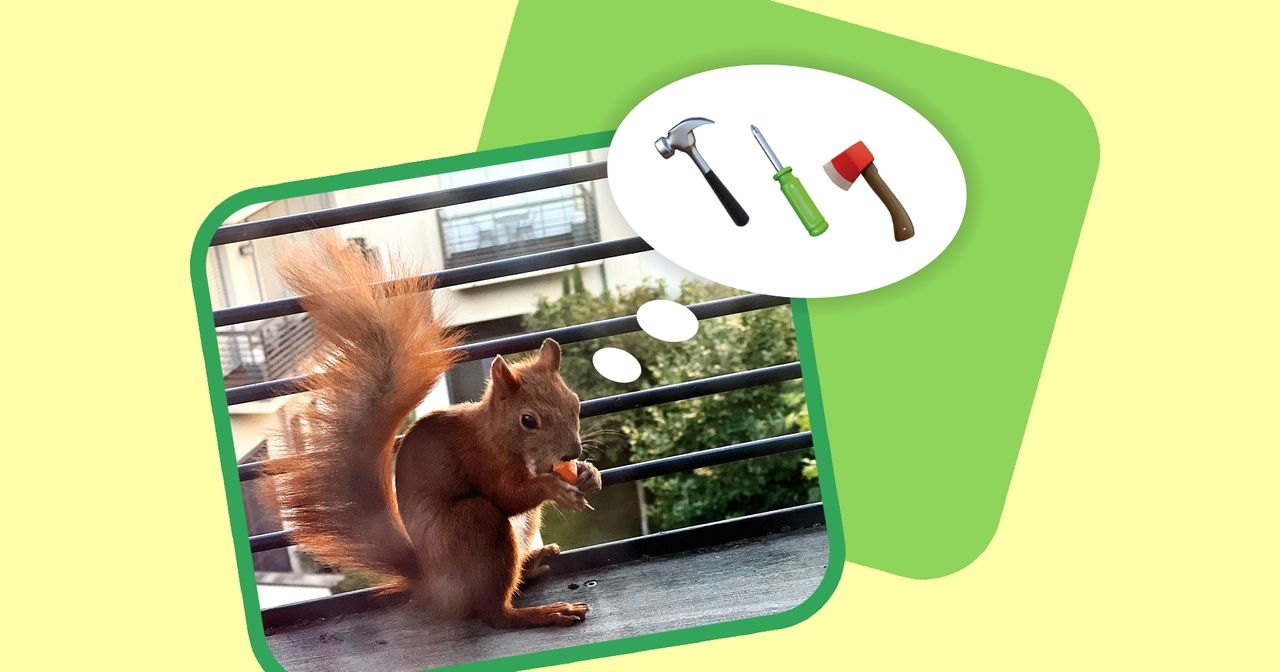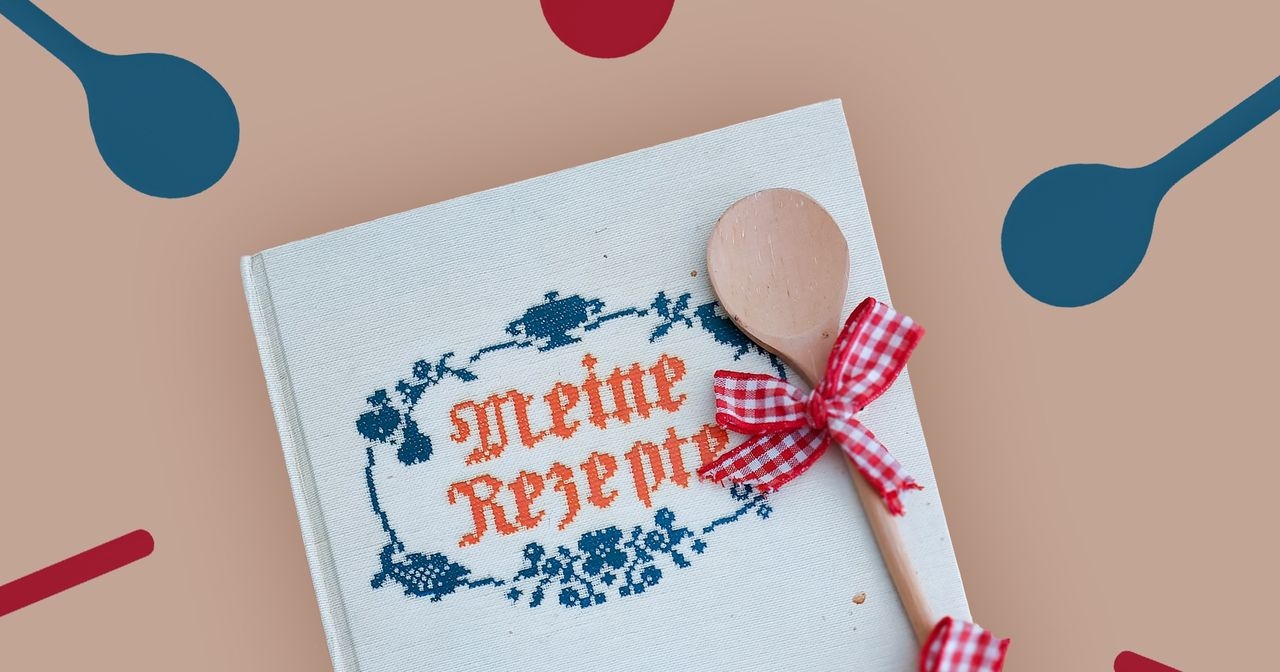What a nut, that nut

Fritzi wriggled into my life five years ago. Through the open balcony door of my fourth-floor kitchen, I caught glimpses of those frantic movements I only knew from squirrels: a shimmering of reddish-brown fur, its bushy tail darting like a shooting star. In English, the squirrel is called a "squirrel," derived from the Greek words for "shadow" and "tail." This squirrel, too, hopped from potted plant to potted plant, burrowed in the soil, ran to the kitchen door, paused. Then it leaped through the open door onto my dining table.
I tried to shoo it away with "shhh, shhh, shhh!" noises, but it hopped around the living room, I chased after it, then I chased it back through the balcony door. It flew elegantly towards the wall plants of the apartment building and disappeared with a rustling sound. In mid-air, it looked as if it were wearing a wingsuit. I placed some walnuts on the balcony for the squirrel and closed the door. A short time later, it held them in its cute little claws and ate them. At that moment, I became a foster mother. I named my first squirrel Fritzi.
Since our first meeting, Fritzi has come every day, often several times a day. I don't know if Fritzi is male or female. Most mornings, Fritzi is already waiting and knocks on the door – not really knocking, but more of a staccato-like, attention-grabbing movement. Sometimes it stands on its hind legs and scratches at the glass door with its claws. If I leave the balcony door open, it slides across my parquet floor or climbs over the furniture. Once, it knocked over all the creams and jars in the bathroom. Another time, it zoomed through my office during a video conference. Every day I put out hazelnuts or walnuts for it. It can't eat almonds; I've researched that they might contain toxic prussic acid. I even bought a squirrel food mix, but Fritzi turned his nose up at the sunflower seeds. Carrots and apples are a nice change, but nuts remain its favorite food.
At least in large cities like Berlin, where I live, squirrels depend on human support: the drought caused by climate change is taking its toll on many wild animals. Rivers carry less water, plants wither, and food becomes scarcer. The asphalt-covered streets of cities offer few water sources, hardly any potholes or puddles. My plant pot saucers, which collect water, are the only water source nearby: there are no cemeteries, the Spree River flows through a canal, and the nearest park is the Tiergarten.

A squirrel visits the home office. But wild animals should remain wild, so the author immediately shoos it away.
Photo: Kerstin Greiner/Lea-Sophie Fetköter
In early summer this year, the Berlin-Brandenburg Squirrel Rescue sounded the alarm: squirrels could fall from trees due to dehydration. Berlin receives only about 580 millimeters of rain per year; scientists classify the landscape as steppe when rainfall is between 300 and 500 millimeters. The drought causes nuts to ripen too early, and by the end of summer, there is hardly any food left. Furthermore, the mild winters could disrupt the squirrels' crucial hibernation, stressing them and making them more susceptible to illness – although there are no studies on this yet, only speculations. Because of the warmer winters, the mating season also begins earlier, sometimes as early as January, and if it gets cold again after the early birth, many young squirrels don't survive. So I let Fritzi into my life. And the squirrel let me into his.
Urban squirrels have learned to adapt. The Leibniz Institute for Zoo and Wildlife Research in Berlin is investigating how they cope with the changing environment: For her doctoral thesis, Sinah Drenske fitted squirrels with tracking chips and set up wildlife cameras; she also analyzed data from a Berlin-wide citizen science project – for three years, volunteers set up cameras in their gardens and uploaded the photos to a reporting platform.
Finding: Squirrels flexibly adjust their daily activities to the presence of humans, dogs, cats, and predators such as martens or birds of prey. "This allows them to make good use of food sources and minimize their mortality risk," says Sinah Drenske. "They perceive cats as their greatest threat."
Another finding: During the coronavirus lockdown, squirrels became more active in gardens. People were digging around in their gardens – or on their balconies – and setting up feeding stations. "These new food sources may have encouraged squirrels to visit these spots," says Drenske. In general, the pandemic was a boon for wildlife: hardly any dangerous car traffic, and plenty of peace and quiet. Humans offer squirrels another major advantage: "Birds of prey keep their distance from humans more than squirrels. People protect them."
Last summer, Fritzi sat outside my door with company. I assume it was her two kittens, whom she was showing a good feeding spot. The trio was so boisterous that I couldn't get a photo where all three were clearly visible together. One has a white belly, or is it two? I call them all Fritzi now. I talk to my Fritzis every day; sometimes they sit on the balcony railing for minutes at a time, just watching me.

Squirrels are territorial and mark their territories, but when their habitat is small, they share it.
Photo: Kerstin Greiner/Lea-Sophie Fetköter
There are indications, says Sinah Drenske, that cities could be good refuges for squirrels: fewer predators, more food. "Studies in other countries show that there are now more animal species in a small area in cities than in the countryside," she says. "Urban squirrels seem to be less afraid of humans, which makes them more adaptable: because bolder squirrels have a better chance of finding water and food."
My three brave squirrels! These impish creatures remind me of the cheekiness and freedom of a Pumuckl: suddenly they're there, very funny – and then gone again, as if invisible. They seem more trusting than other wild animals, more inclined towards me and humans in general. "But that's just the human perspective: because we find them cute and they can't pose a danger to us. We could also feed wild boars, but they have teeth. They appreciate the protection from hunting and the wide variety of food available in the city just as much," says Drenske. Of course, I know that my three squirrels only come to me because of my houseplants, the overgrown courtyard, and my never-ending collection of nuts. Nevertheless, I find myself now going to the kitchen balcony door in the mornings and scratching at the glass from the inside with my fingernails to get their attention. Where are you today?
The zoologist and scientist Josef H. Reichholf, author of the book *The Life of Squirrels *, said in an interview with the Berliner Zeitung : "I often have the impression—it's difficult to say for sure whether it's correct, as a scientist one has to be careful—that our upright locomotion makes us somehow interesting to squirrels. They look at us curiously." A nice thought, I think. At least it's a good feeling to think it might be true.
My three Fritzis aren't the only ones whose behavior has adapted to the city in Berlin-Mitte. Recently, a fox slept all day long in front of my neighbor's patio door, who has her office on the ground floor facing the courtyard, curled up comfortably on the doormat.
süeddeutsche




